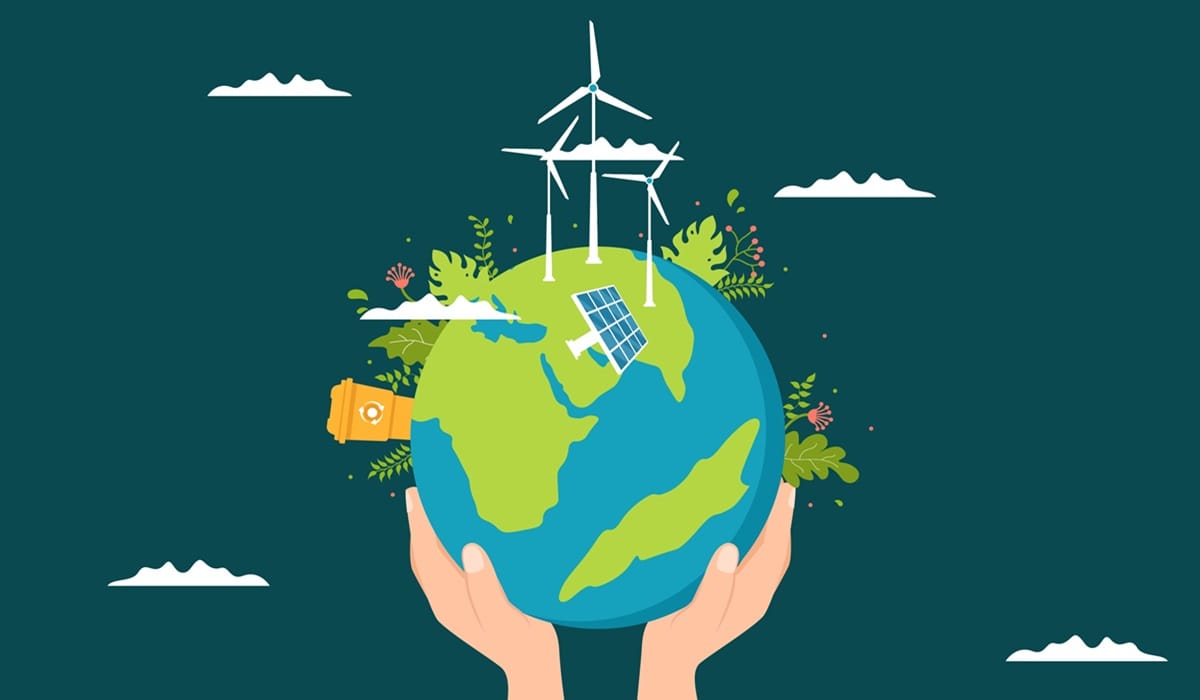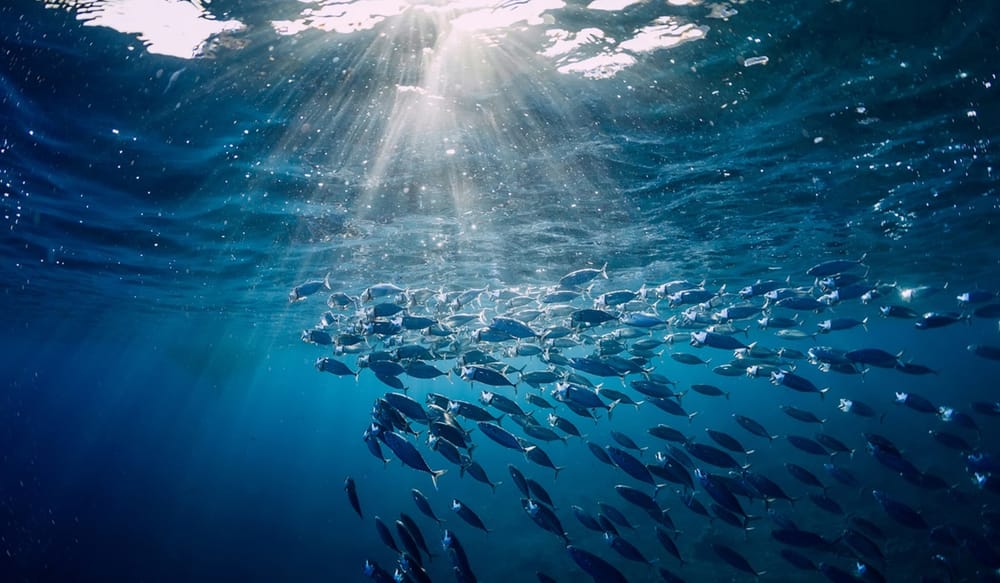
Good news for humankind!
The world's latest milestones for climate, justice, peace, health, and more
March 25 - 31 2024 C.E.
A majority of nations agree to global tax on shipping emissions for first time ever
Two weeks of talks at the U.N.'s International Maritime Organization have concluded in London, with a clear majority of countries emerging in favor of a historic, first-ever global emissions levy. The shipping sector, which accounts for 3% of global emissions and transports more than 90% of global trade, is regarded as one of the hardest industries to decarbonize, partly owing to the vast amounts of dirty fossil fuels the ships burn each year.
Aichi becomes Japan’s first prefecture to consider same-sex couples with children as family
Aichi – which is home to Japan's fourth largest city Nagoya – will become the country's first prefecture to recognize non-heterosexual and common-law couples and their children as families under a “family ship” oath system that will come into effect on April 1. Those who take the oath will have the right to public housing provided by the prefecture and will have the right to give consent when a loved one needs surgery at a hospital managed by the prefecture.
In move to protect whales, Polynesian Indigenous groups give them ‘personhood’
Indigenous leaders of New Zealand, Tahiti, and the Cook Islands signed a historic treaty that recognizes whales as legal persons in a move conservationists believe will apply pressure to national governments to offer greater protections for the large mammals. “It’s fitting that the traditional guardians are initiating this,” said Mere Takoko, a Māori conservationist who leads Hinemoana Halo Ocean Initiative, the group that spearheaded the treaty. “For us, by restoring those world populations we also restore our communities.”
Slovakia plans to be coal-free by 2024, six years earlier than originally planned
Slovakia stopped production at its last coal-fired power plant this week. Its electricity will now come almost entirely from nuclear and renewable sources. Slovakia originally slated its coal phaseout for 2030 but has now expedited this to mid-2024, when it will join Belgium, Austria, Sweden and Portugal as Europe's coal-free countries.
In first, an Argentine court convicts ex-officers of crimes against trans women during dictatorship
Judges overseeing a high-profile human rights trial in Argentina have convicted 11 former officials of crimes against humanity, in the South American nation's first case to focus on the former military dictatorship’s overlooked practice of committing sexual violence against transgender women.
Oregon governor signs nation’s first right-to-repair bill that bans parts pairing
The law, like those passed in New York, California, and Minnesota, will require many manufacturers to provide the same parts, tools, and documentation to individuals and repair shops that they provide to their own repair teams. But Oregon's bill goes further, preventing companies from implementing schemes that require parts to be verified through encrypted software checks before they will function.
Croatia approves law to criminalize femicide
After Cyprus and Malta, Croatia is the third E.U. member state to recognize the crime of femicide, which is defined as the killing of a woman or girl, in particular by a man and on account of her gender. The legislation will also increase the prison sentence for rape from 1 to 5 years to 3 to 8, and victims will have the option to give testimony via videocall rather than attending in person.
Biden administration restores threatened species protections in the U.S. dropped by Trump
Among the changes, the U.S. Fish and Wildlife Service will reinstate a decades-old regulation that mandates blanket protections for animals and plants newly classified as threatened. That means officials won’t have to craft specific plans to shield each individual species while protections are pending, as has been done recently with North American wolverines in the Rocky Mountains, alligator snapping turtles in the Southeast and spotted owls in California.
U.N. General Assembly adopts landmark resolution on artificial intelligence
The Assembly called on all Member States and stakeholders “to refrain from or cease the use of artificial intelligence systems that are impossible to operate in compliance with international human rights law or that pose undue risks to the enjoyment of human rights.” The text was “co-sponsored” or backed by more than 120 other Member States. It represents the first time the Assembly has adopted a resolution on regulating the emerging field.
Germany approves partial legalization of cannabis
The new law will allow adults to carry up to 25 grams of cannabis for their own consumption and store up to 50 grams at home. Public consumption will be allowed, so long as it is not within sight of children or near sports facilities. It will also be prohibited in pedestrian zones between 7 a.m. and 8 p.m. It is slated to come into effect on April 1.
Finland enacts world’s first-ever carbon tax (1990 C.E.)
The tax was based on the carbon content of the fossil fuels and charged at €1.12 per tonne of CO2 when it was first started. The carbon tax was reformed in 1997 and 2011. Now, it has evolved into a combined tax of carbon and energy tax charging €18.05 per tonne of CO2 and €66.2 per tonne of carbon.
Global shipping industry achieves net-zero carbon emissions (2046 C.E. ???)
Long considered one of the most difficult global industries to decarbonize, the global shipping industry transitions fully to carbon-free fuel sources in a historic win for climate action. As of 2024, the global shipping industry contributed 3% of all global emissions, more than the entire aviation industry.
These milestones have been added to our database of social change milestones – past, present & future. Filter by topic, country, era, and more. Explore the archive

What is coaching?
When I introduce myself as a "leadership coach," I often get a look of puzzlement in return. Recently, it's dawned on me that not everyone necessarily knows what coaching or leadership really is, or at least what they mean to me. Or they might think they know when I actually mean something quite different.
So in the coming weeks, I am going to write a series of short pieces that help bring clarity to what coaching is, my personal coaching approach and philosophy, and more.
In the past decade or two, the field of coaching has exploded. Instagram, LinkedIn, and conferences are now littered with people like me, introducing themselves as "coaches" who can help unlock your untapped potential.
And yet, despite the growing prevalence and acceptance of coaching, many people (sometimes myself included) still wonder: What exactly is coaching?
The reality is that coaching is many different things and can mean different things to different people. It is a huge umbrella under which many disparate practices and modalities can fall. So here are some key distinctions that might be helpful.
Coaching vs. therapy
Of all well-known professions, coaching probably most resembles talk therapy. It's usually a 1-on-1 setting where individuals get support that helps them experience more fulfillment or success in their lives, whatever that means to them.
Therapy tends to focus on processing and healing from past experiences and understanding how they inform present feelings and behaviors. It's about integrating the past. The ultimate goal is to get insight that helps move through troubling emotions or toxic behavioral patterns.
In contrast, coaching tends to focus more on the future: getting clarity on the life and career you most want for yourself, and identifying and transcending whatever might be standing in your way. The ultimate goal is often to envision the future you most want for yourself and take meaningful steps toward realizing it.
Another way to think about it: If an athlete tears their ACL, they will likely hire a physical therapist to heal and recover their flexibility and strength. But even after they heal from their injury, they will likely still have a coach who helps them realize their full potential as an athlete.
In short, coaching is typically a support system that helps you envision and realize whatever future you most want for yourself.
Transferring knowledge vs. unlocking wisdom
Perhaps the most common misconception is that coaching involves an expert in a specific field transmitting knowledge to someone so that they can sharpen and expand their practical skills. And in fairness, this is often the case. For example, you might hire a marketing coach to learn specific, concrete marketing techniques. This form of coaching is mostly about learning from someone who has had success in a given field.
But this is not actually what many, perhaps most, coaches do. In fact, coaches certified by the International Coaching Federation are trained to work in an entirely different paradigm. Rather than transferring knowledge and expertise to their client, the coach's primary job is to help the client tap into their own innate wisdom. Coaches in this paradigm (like me) firmly believe that the client already has the answers they need. The coach's job is simply to create the conditions in which the client can identify, deconstruct, and replace whatever limiting beliefs or perspectives might be blocking access to that wisdom.
Expertise coach vs. life coach vs. executive coach
There are now a billion different types of coaches: life coaches, career coaches, executive coaches, leadership coaches, purpose coaches, productivity coaches, mindset coaches, transformational coaches, and on and on. For me, it's most helpful to think of three basic groups.
Expertise coaches are those with knowledge and experience in a specific field. They largely transfer knowledge to their clients. They probably don't call themselves expertise coaches, but rather a "[their field of expertise] coach."
Life coaches are typically those who help clients tap into their own innate wisdom so that they can expertise more fulfillment in their lives and careers.
Executive coaches may fall into either (or likely both) of these camps. But they focus specifically on professionals at or near the top of their organizations or founders/entrepreneurs trying to build a business from the bottom up.
What did I miss?
This is a brief, non-exhaustive description of some key distinctions relevant to the coaching field. What did I leave out? What else might I speak to that helps you better understand this growing field and whether it might serve you? Let me know by responding to this newsletter or filling out the contact form here.
Next week, I will tackle the question: Would therapy or coaching better support you right now?

Peter Schulte
Leadership Coach
Executive Director of Spark of Genius
he/they
Let's connect
Feeling burnt out, overwhelmed, lost, or stuck? I help aspiring leaders cultivate peace and purpose, share their gifts with the world, and live a life they can fall in love with. Your first session is free! Learn more.
Once a week, I offer 1-on-1 office hours as a gift to my readers. Some people use it as a chance to connect and get to know me. Others bring specific questions to get support on. Up to you! No charge. No strings. Reserve your spot.
Have questions, concerns, ideas, reactions, or just want to get in touch? Drop me a line by replying to this email.









